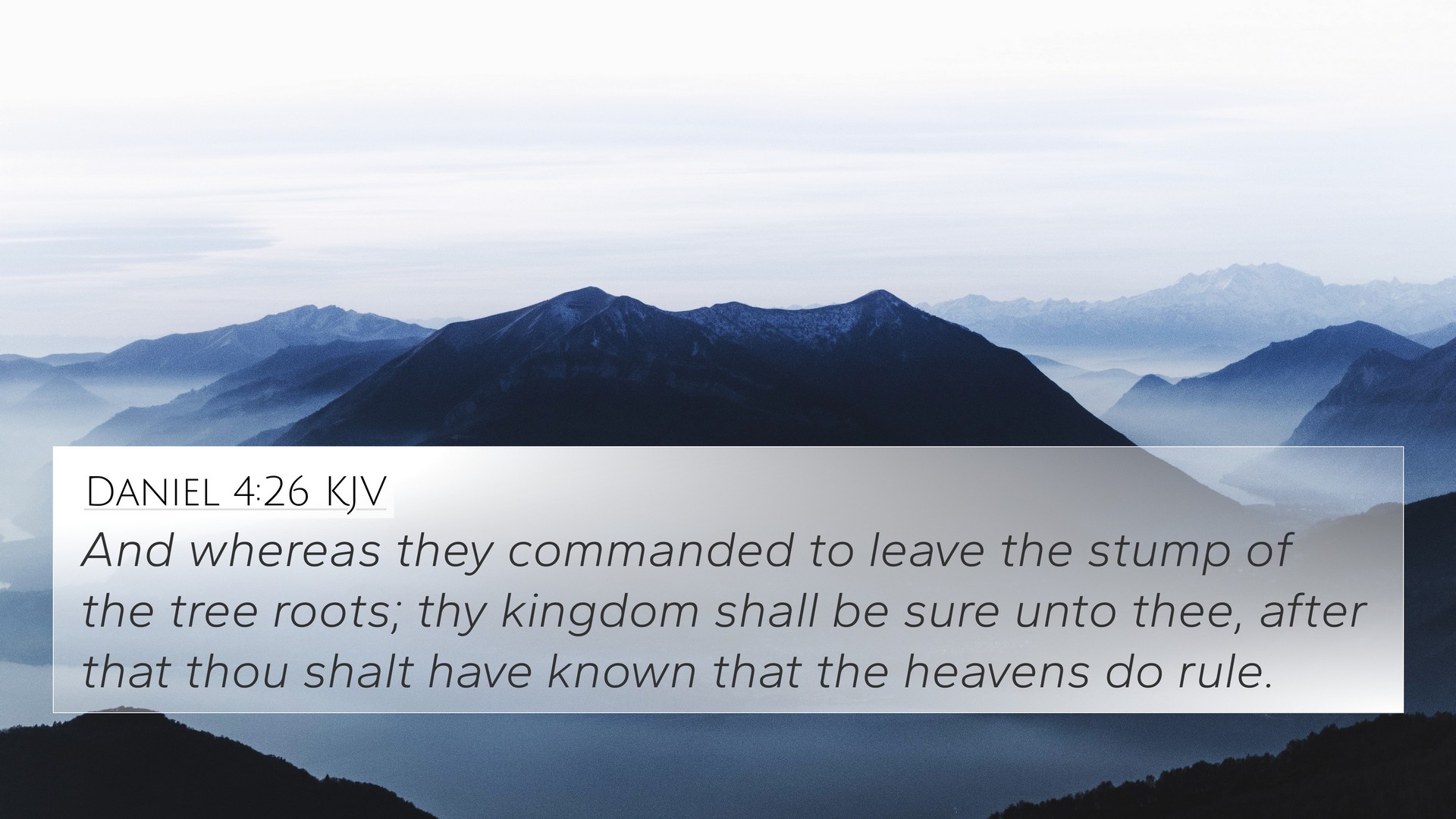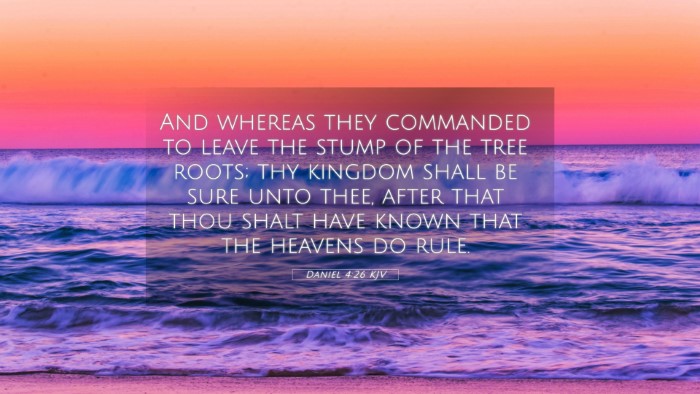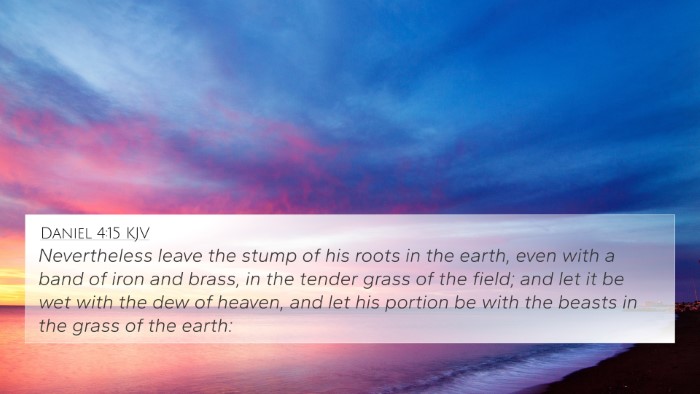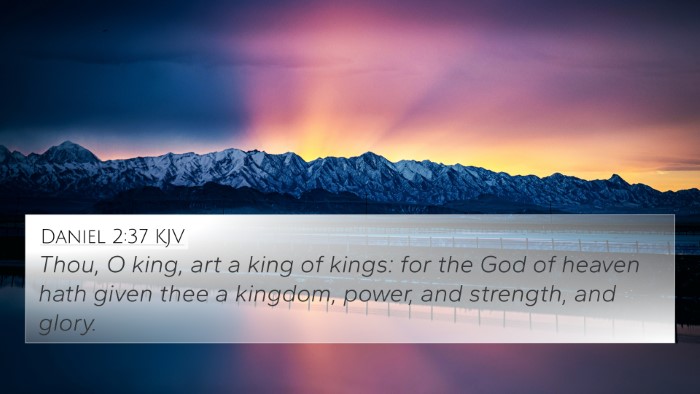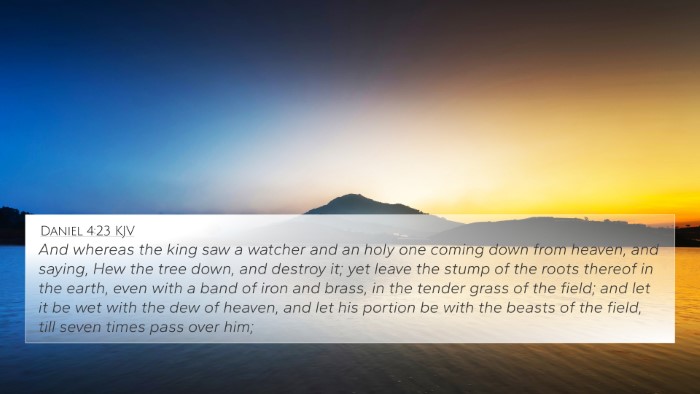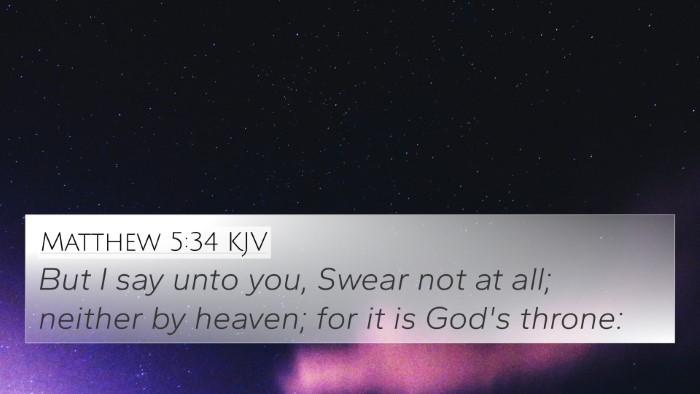Understanding Daniel 4:26
Daniel 4:26 states:
"And whereas they commanded to leave the stump of the tree roots; thy kingdom shall be sure unto thee, after that thou shalt have known that the heavens do rule."
This verse is part of the broader narrative in the Book of Daniel that illustrates God’s sovereignty and judgment over the kingdoms of the earth. The symbolism of the tree, which is cut down yet leaves a stump, is significant and can be unpacked through the insights of various public domain commentaries.
Meaning and Interpretation
The stumping of the tree in Daniel 4 signifies the humbling of Nebuchadnezzar, the king of Babylon. The stump that remains symbolizes the remnant of that authority and kingdom, which will ultimately be restored when the king recognizes God’s sovereignty.
- Matthew Henry: He emphasizes the humility brought upon Nebuchadnezzar as a result of his pride. The stump signifies hope and restoration, indicating that despite judgment, God’s mercy is present for those who repent.
- Albert Barnes: He explains that the phrase "the heavens do rule" is a declaration of divine authority. Nebuchadnezzar’s realization of this truth turns from pride to recognition of God's power, thereby restoring him after a period of madness.
- Adam Clarke: Clarke interprets the "stump" as a metaphor for a lesson in humility and submission to God's will. He notes that the preservation of the tree’s roots symbolizes the faithfulness of God to His covenant, even when judgment is enacted.
Cross-References Related to Daniel 4:26
Isaiah 2:11-12: Similarity in the theme of humility before God.
James 4:6: God’s opposition to pride.
Psalms 75:7: The declaration that God is the ultimate judge.
Proverbs 16:18: The warning against pride preceding destruction.
1 Peter 5:6: Instruction on humbling oneself under God's mighty hand.
Revelation 19:6: Acknowledgment of God’s sovereignty in all matters.
Romans 13:1: The concept that all authority comes from God, relating to kingdoms.
Thematic Connections and Analysis
This verse exemplifies the theme of divine sovereignty, which is a recurrent subject throughout the Bible. The overarching message is that earthly kings and powers, although they may rise, ultimately serve under the authority of God.
Comparative Analyses of Related Verses
Engaging in a comparative Bible verse analysis allows us to delve deeper into the nature of God’s governance. For instance, contrasting Daniel 4:26 with Romans 13:1 illustrates how God employs human authority for His purposes.
The Importance of Cross-Referencing
Understanding Daniel 4:26 through the lens of cross-references offers insights into how different parts of the Bible communicate and reinforce the same themes. Tools for Bible cross-referencing, such as concordances and guides, are vital for comprehensive study.
For example, by examining Isaiah 14:24 and Proverbs 21:1, we can find thematic Bible verse connections that speak to God’s control over even the mightiest rulers. These links deepen the interpretation of Nebuchadnezzar’s story.
Conclusion
Daniel 4:26 serves as a profound reminder of God’s ultimate authority and the necessity of humility before Him. As believers seek to understand connections between Bible verses, they are able to grasp the full context and implications of Scripture.
By employing biblical cross-references and engaging in inter-Biblical dialogue, readers can enrich their knowledge and application of God’s message throughout the scriptures. Understanding the connections and themes between verses is crucial for a comprehensive Bible study experience.
Through detailed thematic analysis and referencing, we can navigate the complexities of God's word and appreciate the intricate design of scripture.
